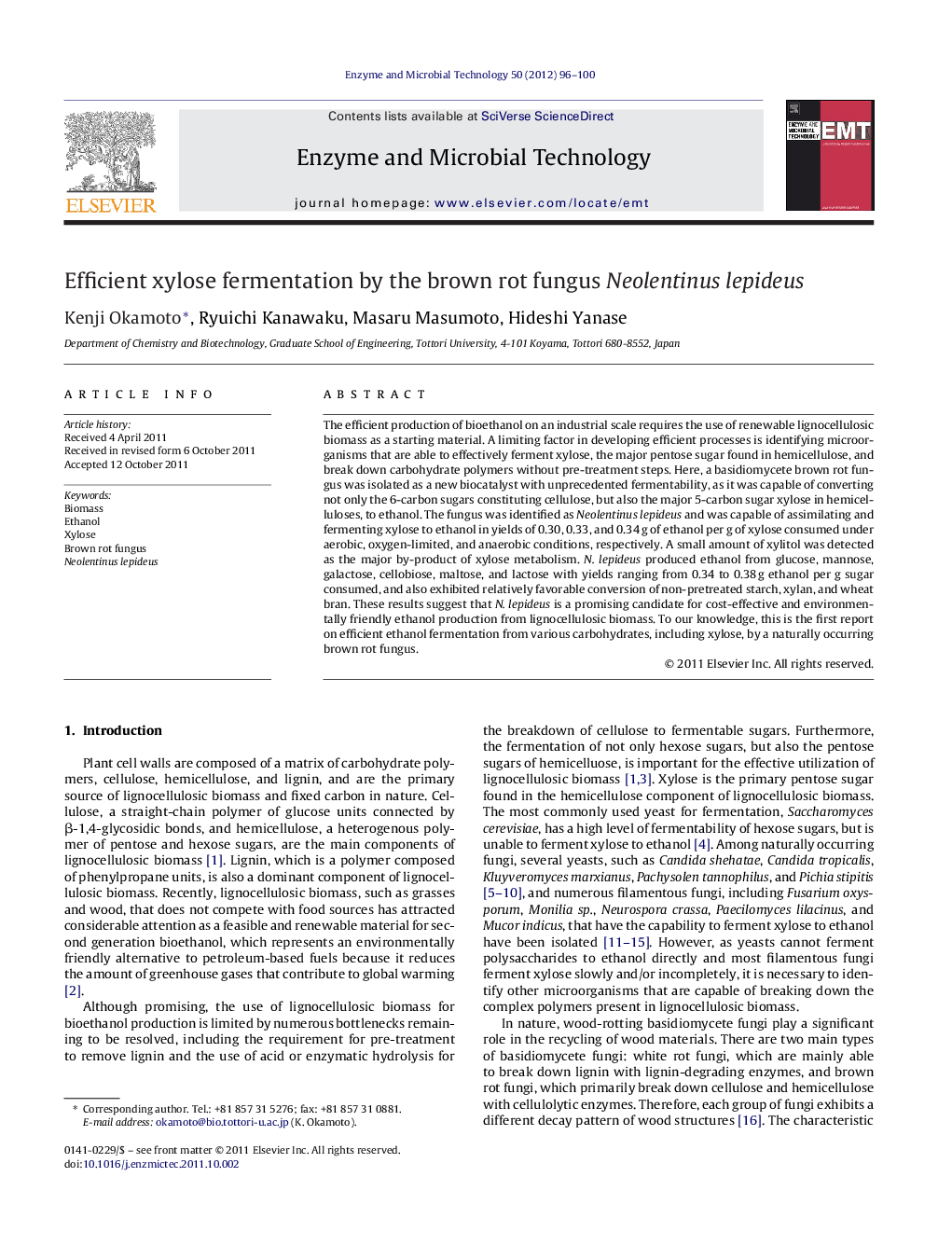| Article ID | Journal | Published Year | Pages | File Type |
|---|---|---|---|---|
| 17269 | Enzyme and Microbial Technology | 2012 | 5 Pages |
The efficient production of bioethanol on an industrial scale requires the use of renewable lignocellulosic biomass as a starting material. A limiting factor in developing efficient processes is identifying microorganisms that are able to effectively ferment xylose, the major pentose sugar found in hemicellulose, and break down carbohydrate polymers without pre-treatment steps. Here, a basidiomycete brown rot fungus was isolated as a new biocatalyst with unprecedented fermentability, as it was capable of converting not only the 6-carbon sugars constituting cellulose, but also the major 5-carbon sugar xylose in hemicelluloses, to ethanol. The fungus was identified as Neolentinus lepideus and was capable of assimilating and fermenting xylose to ethanol in yields of 0.30, 0.33, and 0.34 g of ethanol per g of xylose consumed under aerobic, oxygen-limited, and anaerobic conditions, respectively. A small amount of xylitol was detected as the major by-product of xylose metabolism. N. lepideus produced ethanol from glucose, mannose, galactose, cellobiose, maltose, and lactose with yields ranging from 0.34 to 0.38 g ethanol per g sugar consumed, and also exhibited relatively favorable conversion of non-pretreated starch, xylan, and wheat bran. These results suggest that N. lepideus is a promising candidate for cost-effective and environmentally friendly ethanol production from lignocellulosic biomass. To our knowledge, this is the first report on efficient ethanol fermentation from various carbohydrates, including xylose, by a naturally occurring brown rot fungus.
► Efficient bioethanol production from lignocellulosic biomass requires a microorganism with wide spectrum of fermentation performance. ► A naturally occurring basidiomycete fungus having a capacity to ferment not only xylose and but also various hexose sugars was isolated. ► Xylose fermentation under oxygen-limited conditions leads to high ethanol productivity. ► The fungus is also capable of converting starch, xylan, and wheat bran directly to ethanol without pretreatment.
